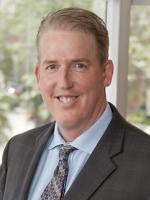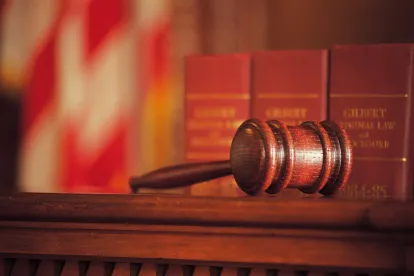After more than five years of uncertainty, the Florida Supreme Court’s opinion in DeLisle v. Crane finally settled the debate over the standard for determining the admissibility of expert witness testimony in Florida state courts. Case No. SC16-2182 (Fla. Oct. 15, 2018). In a narrow 4-3 decision, the court rejected Daubert and adopted Frye. The outcome should come as no surprise. In 2017, in a rarely exercised move, the Florida Supreme Court declined to adopt the legislature’s 2013 revisions to the Florida Evidence Code codifying Daubert.
Prior to 1993, the Frye standard for admitting expert testimony was the prevailing standard for guiding federal and state courts in their consideration as to whether scientific expert testimony should be admitted at trial. Frye v. United States[1]. The Frye standard requires that the proponent of the evidence establish the general acceptance of the underlying scientific principle and the testing procedures. Notably, Frye only applies to new or novel scientific evidence. However, in 1993, following a revision to the Federal Evidence Code by Congress, the Supreme Court of the United States annunciated the new standard in Daubert v. Merrell Dow Pharmaceuticals, Inc.[2] The Daubert inquiry was meant to be flexible and focused on scientific principles and methodology, not conclusions. The Daubert opinion emphasized that the Federal Rules of Evidence governed admissibility and suggested a series of factors a court could consider, but did not establish a test per se. Under Daubert, the admissibility of expert evidence rests squarely within the discretion of the trial court judge. In contrast to Frye, Daubert applies to all expert witness testimony. Since 1993, federal courts and most state courts adopted the Daubert standard, but not Florida.
In 2013, the Florida State Legislature attempted to join the majority of states when it passed an amendment to the Florida Evidence Code, codifying Daubert.[3] However, in February 2017, the Florida Supreme Court declined to adopt the changes and cited the “grave constitutional concerns” raised by The Florida Bar’s Code and Rules of Evidence Committee. The Committee expressed concerns that the amendments (1) were procedural and infringed on the Court’s rulemaking authority; (2) undermined the right to a jury trial and (3) denied access to the courts. Naturally, most Plaintiffs’ attorneys agreed with the High Court’s decision. In their opinion, Daubert created a “power imbalance” based on the relatively limited resources available to the average Plaintiff versus the seemingly limitless resources available to insurance companies and corporations.
Despite the Court’s rejection of the amendments, the Daubert standard remained a part of the Florida Evidence Code. What did this mean for Florida litigants? Well, courts are bound by the law, and the Florida Supreme Court’s decision not to adopt the Legislature’s changes to the Florida Evidence Code was a “rules-decision,” not a decision on the constitutionality of the newly codified Daubert amendments. So, most courts followed the Evidence Code, including the Fourth District Court of Appeals in Crane Co. v. DeLisle.[4]
In DeLisle, the Fourth DCA excluded expert testimony under the Daubert standard and reversed a trial court’s verdict and ruling on directed verdict. Seizing the opportunity to quash the Frye–Daubert controversy, the Florida Supreme Court accepted the case for review. The Court’s decision to review DeLisle was not without controversy. Justice Canady’s dissent argued that the court lacked jurisdiction to review DeLisle, since the decision did not “expressly and directly conflict with a decision of another district court of appeal or of the supreme court on the same question of law.” Nonetheless, the majority’s opinion, authored by Justice Quince, based its review on a conflict with Marsh v. Valyou,[5] which decided the applicability of Frye to expert testimony causally linking trauma to fibromyalgia. The majority stated that “Marsh reaffirmed a procedural rule of the Court that the Legislature has limited authority to repeal.”
The Supreme Court held that the 2013 amendments to the Florida Evidence Code codifying Daubert were unconstitutional and infringed on the Court’s rulemaking authority. However, the majority’s opinion offered even more criticism of Daubert and expressed additional constitutional concerns:
Despite the Supreme Court’s intention that Daubert be applied flexibly, it has been observed that, in actuality, the gatekeeping role bestowed upon the judiciary has blocked more court access than it has enabled … defendants often exploit the requirements of Daubert as a sword against plaintiffs’ attorneys. Others have written that Daubert has “produced a minefield clogged with ‘Daubert hearings’ that are more lengthy, technical, and diffuse than anything that preceded them.
As alluded to above, Plaintiffs’ attorneys view Daubert as advantageous to Defendants. Indeed, Daubert is applied more broadly than Frye and Defendants can challenge the admissibility of any expert testimony. Whereas Frye only applies to opinions based on new or novel scientific evidence. Plaintiffs argue that Daubert allows insurance companies and corporate Defendants to overwhelm Plaintiffs and exhaust their resources with multiple, costly Daubert hearings. Plaintiffs’ lawyers believe that returning to Frye will level the playing field. For Defendants, returning to Frye means one less arrow in their quiver, though it does not foreclose all challenges to expert testimony.
[1] 293 F. 1013 (D.C. Cir. 1923)
[2] 509 U.S. 5579 (1993)
[3] The Daubert Amendments amended sections 90.702 and 90.704 of the Florida Statutes. Ch. 2013-107, §1-2, Laws of Fla.
[4] 206 So. 3d 94 (Fla. 4th DCA 2016)
[5] 977 So. 2d 543 (Fla. 2007)




 />i
/>i

